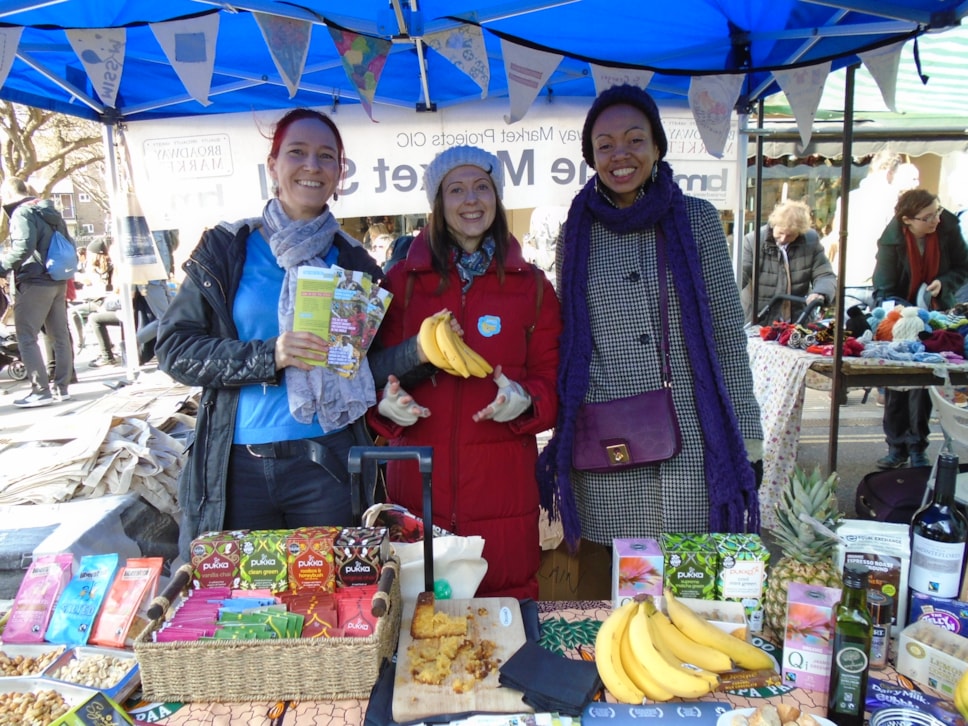
Drink aware: How Hackney's cafe culture is helping coffee farmers in developing countries
Some of us use it as a morning jumpstart, others for an afternoon pick-me-up. We’ll buy jars and jars to have at home or meet for a catch-up over quirky blends. We’re a nation in love - with coffee.
But like most love affairs it’s not all black and white.
Hackney-based film director Nick Francis spent two years following an Ethiopian cooperative in its fight for a better price globally for its coffee in his award-winning feature Black Gold, which screened for free in Hackney Picturehouse earlier this month to mark the finale of Fairtrade Fortnight.
“I realised that [the Ethiopian cooperative] were growing this phenomenal coffee at the time when we were seeing more and more coffee shops spring up in the West,” said Nick, speaking during a post-film Q&A organised by Hackney Fairtrade Group. “But there was this massive dichotomy between what they were getting paid and what we were paying for it over here.
“I was watching the news and they announced Ethiopia was facing another food crisis. This time coffee farmers were also caught up in this. So here was people producing one of the most valuable commodities in the world joining queues for food aid. How was that possible when we were enjoying this product?”
The problem, says Nick, was the huge coffee conglomerates which for years had maintained an unchallenged stranglehold on the industry, paying poor farmers pitiful prices for their beans, then making colossal profits from us.
But things are changing. The increasingly successful Fairtrade movement ensures farmers in developing countries get a good price for their products, from coffee and bananas to flowers and even gold. The Fairtrade label is more than just a colourful sticker; it’s a mark of fairness, protection and livelihood.
“It’s been a challenge,” said John Kasule, manager at Kibinge Coffee Farmers Cooperative Society in Uganda, which became Fairtrade in 2011. “We had been earning less than our production cost and unless we get these labels, Fairtrade labels, and these farmers get the minimum cost, it’s really hard for our producers.
“We need these labels to help the farmers actually set the prices and survive and be happy and do something for themselves; without that they’ll always come for aid.
“Between 2011 and up to now we can really say we formed the community, we have done a lot in health and we have done a lot in education. Fairtrade has really protected us. We are protected by the label. We need this price.”
In parallel with trends across London and New York, Hackney has witnessed a burst of cafe culture in the past ten years.
But what’s surprising is the borough’s booming business is a small cog in the wheel of change for developing world farmers.
“Those who live in Hackney will know there is a huge concentration of great coffee shops,” said Nick. “There has been an explosion in smaller roasters who are trying to think differently [than the big companies] about the business of dealing coffee: it’s become a craft, a culture, that’s driven a demand for great quality. It’s opened up, alongside Fairtrade, a way of getting to the same ends, which is thinking of a sustainable way for coffee farmers to make a living.”
So what can residents do? Buying Fairtrade is a start and also questioning what you’re consuming, says Nick.
“It’s worth asking about the story of each roaster when you go into a coffee shop,” he said. “The system still favours [the big companies] who are marketing, roasting and selling the coffee, not the people producing the coffee.
“However [independent roasters] are buying coffee directly, some at a higher price than Fairtrade. They develop a relationship with the people growing the stock and are crafting it into our coffee. They get repeat customers and develop a much deeper relationship right from bean to the cup.”
Fairtrade is now more than 20 years old and has an international reach of 1.4 million farmers and workers spread across more than 70 countries but there is an ongoing battle of ethics especially against the coffee chains who often do little more than pay lip service to Fairtrade. Kevin McCullough, Head of Campaigns of the Fairtrade Foundation, said: “The challenge for us as campaigners is how can we actually move those companies to make sure all their varieties are Fairtrade and ensure they don’t get away with just having one Fairtrade product.
“The most important takeaway point is about the price the farmer gets and we have a challenge in Fairtrade to campaign for an increase in prices back to the farmer.”
Sunday marked the end of two weeks of events to raise awareness of Fairtrade in Hackney which included stalls in Broadway Market and Hackney Central and CLR James Dalston libraries, manned by the Hackney Fairtrade Group, offering a range of Fairtrade produce, including chocolate, bananas, soap and olive oil. The Group also spoke to residents, offering advice on how to switch to Fairtrade and encouraging people to ask their local shops to stock Fairtrade.
Skinners’ Academy, in Woodberry Grove, ran a pop-up Fairtrade chocolate shop during the fortnight as well as a ‘can you taste the justice’ tasting sessions where pupils tried to tell the difference between Fairtrade and non-Fairtrade products.
The Hackney Fairtrade Group would like to thank Wholefoods Stoke Newington Sainsbury’s, Hackney Fresh, Liberation Food, Tropical Whole Foods, Clipper, London Tea Company, Morrison’s, Green Island Wholefoods and Organic O for donating to the stalls.
I would like to thank all those who took part in raising awareness of Fairtrade in the borough over the past two weeks. It’s an issue which is a lot closer to home than we may have realised and it’s hugely important we continue to remember we have the power to make a difference to the lives of those whose products we are consuming and using.Cllr Jonathan McShane, Cabinet Member for Health, Social Care and Culture, Hackney Council
